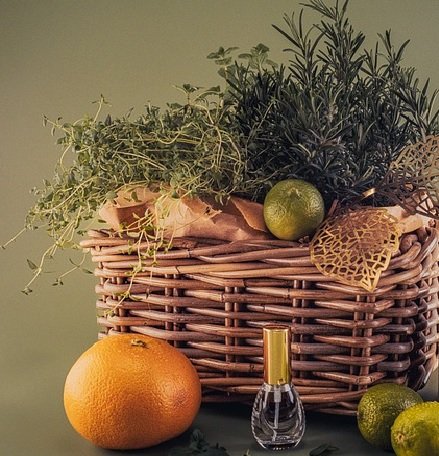
Organic herb gardening is a rewarding and beneficial activity that not only provides fresh, flavorful herbs but also promotes a healthier lifestyle and a more sustainable environment. For North American gardeners, growing herbs organically can transform your garden into a vibrant, eco-friendly space. Here’s a look at the many benefits of organic herb gardening and some tips to get started.
1. Healthier, Tastier Herbs
Nutrient-Rich:
- Enhanced Flavor: Organic herbs often have a more robust flavor because they are grown in nutrient-rich soil.
- Higher Nutrients: Studies have shown that organically grown herbs can have higher levels of essential nutrients and antioxidants compared to conventionally grown ones.
Chemical-Free:
- No Pesticides: Organic gardening eliminates the use of synthetic pesticides and herbicides, ensuring that your herbs are free from harmful chemicals.
- Safer Consumption: This means you can safely use your herbs in cooking, teas, and home remedies without worrying about pesticide residues.
2. Environmental Benefits
Soil Health:
- Improved Soil Structure: Organic practices, such as composting and mulching, improve soil structure and fertility.
- Microbial Activity: Healthy soil supports diverse microbial life, which helps in nutrient cycling and plant health.
Biodiversity:
- Pollinator Support: Organic herb gardens attract pollinators like bees and butterflies, which are crucial for the ecosystem.
- Wildlife Habitat: A variety of herbs can provide habitat and food for beneficial insects and birds.
Water Conservation:
- Efficient Use: Organic gardening practices often involve efficient water use through techniques like drip irrigation and mulching.
- Reduced Runoff: By avoiding chemical fertilizers and pesticides, you reduce the risk of harmful runoff into local waterways.
3. Cost-Effective and Convenient
Savings:
- Reduced Grocery Bills: Growing your own herbs can significantly reduce your grocery bills.
- Minimal Investment: Organic herb gardening requires minimal investment in seeds, soil, and basic gardening tools.
Convenience:
- Easy Access: Having fresh herbs at your fingertips means you can enhance your meals anytime without a trip to the store.
- Year-Round Supply: With indoor herb gardens, you can have a year-round supply of fresh herbs.
4. Therapeutic and Educational Benefits
Stress Relief:
- Relaxation: Gardening is known for its therapeutic benefits, helping to reduce stress and improve mental well-being.
- Mindfulness: The process of caring for plants encourages mindfulness and a connection to nature.
Learning Opportunity:
- Knowledge Growth: Organic herb gardening is a great way to learn about plant biology, ecology, and sustainable practices.
- Family Activity: It’s a wonderful activity to share with children, teaching them about nature and responsibility.
5. Popular Herbs to Grow Organically
Here are some top herbs to consider for your organic garden:
- Basil (Ocimum basilicum)
Uses: Culinary herb used in pesto, salads, and sauces. Care: Plant in full sun; water regularly; prefers well-drained soil.
- Mint (Mentha spp.)
Uses: Teas, desserts, and salads. Care: Plant in partial to full sun; keep soil moist; can be invasive, so consider growing in containers.
- Rosemary (Rosmarinus officinalis)
Uses: Culinary herb used in meats, soups, and breads. Care: Plant in full sun; prefers well-drained soil; water sparingly once established.
- Thyme (Thymus vulgaris)
Uses: Culinary herb used in meats, stews, and sauces. Care: Plant in full sun; prefers well-drained soil; drought-tolerant.
- Parsley (Petroselinum crispum)
Uses: Culinary herb used in salads, soups, and garnishes. Care: Plant in partial to full sun; keep soil moist; biennial, but often grown as an annual.
- Oregano (Origanum vulgare)
Uses: Culinary herb used in Italian and Mediterranean dishes. Care: Plant in full sun; prefers well-drained soil; water moderately.
- Sage (Salvia officinalis)
Uses: Culinary herb used in meats, stuffings, and teas. Care: Plant in full sun; prefers well-drained soil; drought-tolerant.
6. Getting Started with Organic Herb Gardening
Soil Preparation:
- Composting: Enrich your soil with organic compost to provide essential nutrients.
- Mulching: Apply organic mulch to retain moisture, suppress weeds, and improve soil health.
Watering:
- Efficient Irrigation: Use drip irrigation or soaker hoses to deliver water directly to the root zone.
- Consistent Moisture: Keep the soil consistently moist but not waterlogged.
Pest and Disease Management:
- Natural Predators: Encourage beneficial insects like ladybugs and lacewings to control pests.
- Organic Sprays: Use neem oil, insecticidal soap, or homemade remedies to manage pests and diseases.
Fertilization:
- Organic Fertilizers: Use organic fertilizers such as compost tea, fish emulsion, or seaweed extract to nourish your plants.
- Feeding Schedule: Fertilize during the growing season to support healthy growth.
Harvesting:
- Regular Harvesting: Regularly harvest your herbs to encourage new growth and prevent them from becoming woody.
- Proper Technique: Use sharp scissors or pruning shears to avoid damaging the plants.
Organic herb gardening is a fulfilling and sustainable way to enhance your health, environment, and lifestyle. By growing your herbs organically, you can enjoy fresh, flavorful, and chemical-free herbs right at your doorstep. Embrace these benefits and tips to cultivate an organic herb garden that thrives and brings joy throughout the seasons. Happy gardening!
